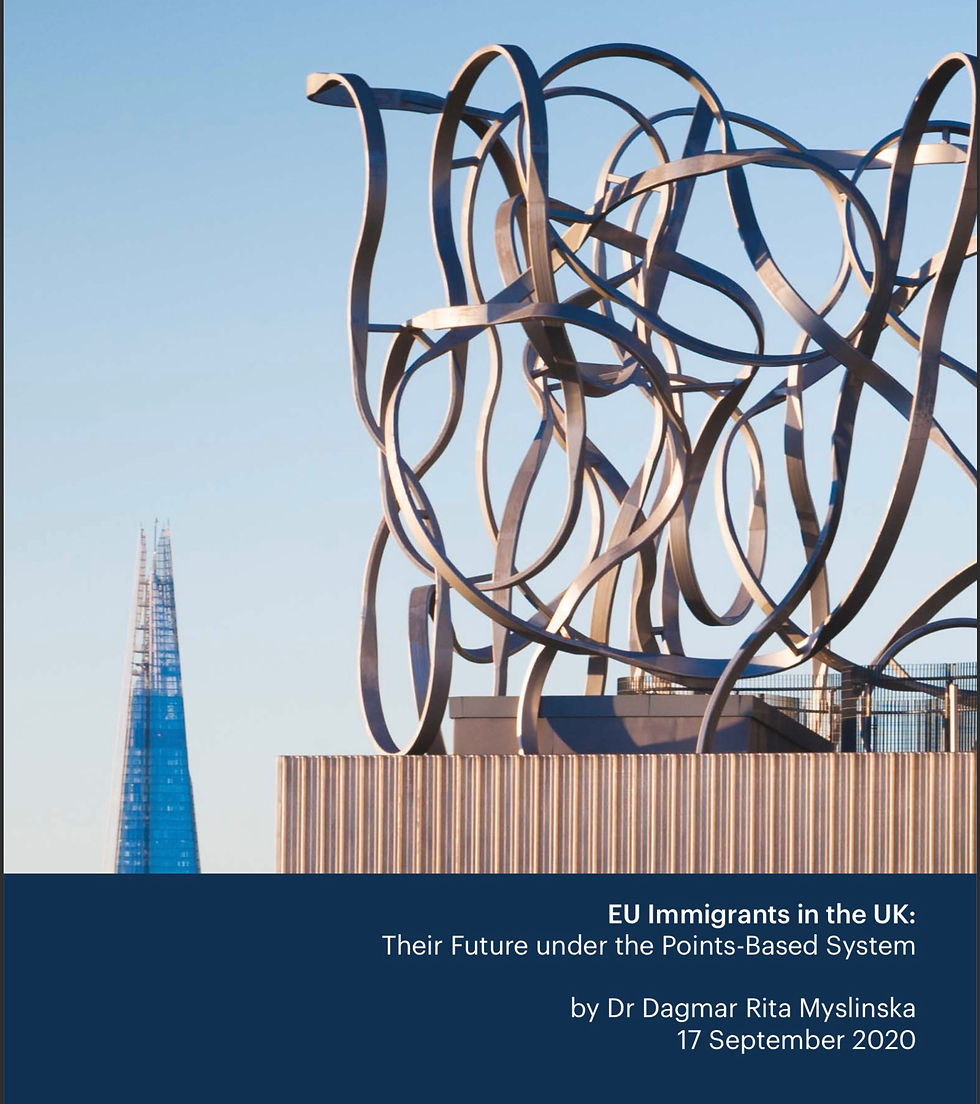Calling upon Parliament to support Harriet Harman's amendment on EU citizens' rights
- Dr Dimitrios Giannoulopoulos
- Feb 6, 2017
- 2 min read

The Britain in Europe think tank calls upon MPs from all political parties to support the Amendment on EU residence rights after Brexit, which was debated in the House of Commons today (6 February).
EU citizens living in the UK should in no way be adversely affected by exit negotiations with the EU once article 50 has been triggered, and should continue to plan their future in this country exactly as before. Legally, morally and pragmatically, this is the position that the UK Government should have adopted immediately after the Referendum.
The amendment – tabled by the Chair of the Joint Committee on Human Rights (JCHR), the Rt Hon Harriet Harman QC MP and supported by other members of the cross-party Committee – states that:
"Nothing in this Act shall affect the continuation of those residence rights enjoyed by EU citizens lawfully resident in the United Kingdom on 23 June 2016, under or by virtue of Directive 2004/38/EC, after the United Kingdom’s withdrawal from the European Union."
The amendment seeks to guarantee current residence rights of those EU citizens lawfully in the UK at the time of the referendum vote on 23 June 2016, filling in the gap that will be created when the UK formally leaves the EU.
It gives effect to Article 8 of the European Convention on Human Rights, which could be violated if EU nationals lawfully residing in the country were deprived of the right to enjoy private and family life in the UK post-Brexit.
The Amendment draws on evidence received by the JCHR that overwhelmingly supports giving immediate recognition to EU citizens’ rights. It already has almost 40 signatures from across the House, including from Rt Hon MPs Nick Clegg, Yvette Cooper, Margaret Hodge, Joanna Cherry QC, Caroline Lucas and Jeremy Lefroy.
‘Britain in Europe’ invites Parliament to support the amendment, and the Government to prioritise investing appropriate resources to ensure effective implementation in practice. There are significant logistical considerations involved in fully recognising the rights of EU citizens, including establishing who was – and who was not – lawfully in the UK on June 23.
Strong consideration must also be given to the rights of EU citizens arriving in the UK after the date of the Referendum. Until the UK has formally exited the EU, they retain full rights to move to the UK, and to work and reside here.
Dr Dimitrios Giannoulopoulos, Director, BiE think tank
Prof Julian Petley (Brunel University London)
Prof James Knowles, FRSA (Brunel University London)
Prof Ed Cape (UWE Bristol)
Prof Arad Reisberg (Brunel University London)
Prof William Leahy, Deputy VC (Brunel University London)
Dr Colin King (University of Sussex)
Prof Benjamin Zephaniah (Brunel University London)
Prof Abimbola Olowofoyeku (Brunel University London)
Prof Justin Fisher (Brunel University London)
Prof Andrew Choo (City University of London)
Prof Paul Roberts (The University of Nottingham)
Mr Scott Crosby (European Criminal Bar Association)
Prof Iyiola Solanke (Leeds University)
David Rosen (Darlingtons Solicitors)
Prof Ashley Braganza (Brunel University London)
Josie Welland (Lloyds PR Solicitors)





Comments